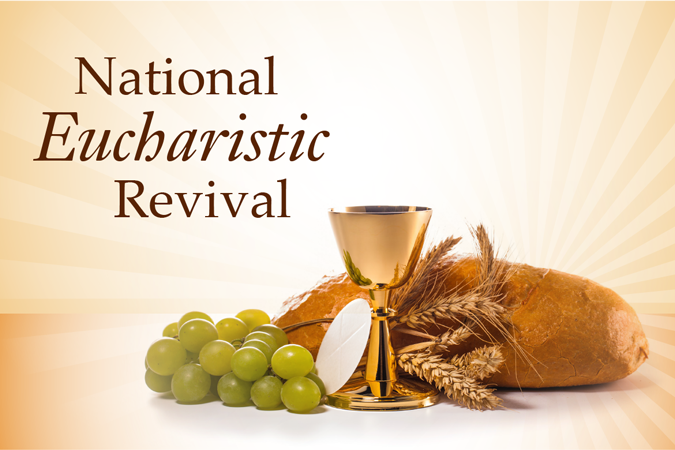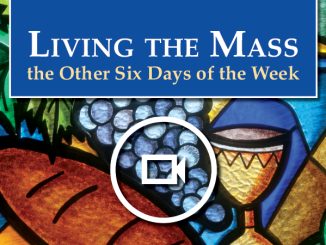The Eucharistic Revival is a great opportunity for catechesis on the Eucharist, and one approach is to help families see the Eucharist as part of God’s plan. Too often, we Catholics receive our sacraments without a deeper understanding of how they connect with the overall narrative of salvation history: how God, throughout history, has continually rescued, restored, and reassured his people. Without this understanding, we run the risk of approaching the sacraments as something that the Church dreamed up out of thin air!
In my book, Living the Sacraments, I explain:
All ritual actions accomplish the same result: they enact a narrative. Symbols and rituals tell a story. If a ritual action becomes disengaged from its narrative, it no longer invokes a story and becomes a hollow gesture, a routine or superstition. In other words, a ritual must be connected to a story so that the act of performing it immediately invokes the story.
During the Eucharistic Revival, let’s do our best to help people understand the connection between the Eucharist and the story of our salvation history! One excellent resource that can assist in such efforts is Forming Ministers of God’s Love: Catholic Parenting in the Domestic Church, by Dr. Dora Tobar. This two-year program (also in Spanish) gives parents a context in which to discuss real-life daily struggles with a community of other parents, centered on teachings and inspiration from Scripture. In particular, Year 2 of the program focuses on “The Eucharistic Community,” exploring how, from the beginning, God’s plan has been for us to know his love and live through him, with him, and in him as a Eucharistic people. The five sessions explore the following:
- the belief that we were created in the image and likeness of God;
- the impact of sin on our relationship with God and others;
- how God has expressed love for his people from the beginning;
- how God led his people out of slavery and into a life in which they answer not to human rulers but to God’s love and commandments;
- how the liberation of the Hebrews celebrated at Passover is what Jesus celebrated with his disciples at the Last Supper on the night before his Crucifixion, when he instituted the Eucharist.
In other words, this catechesis on the Eucharist is powerfully kerygmatic, meaning that it teaches us that every time we receive the Eucharist, we are invoking the narrative of our salvation history that shapes the direction of our lives. Every sacrament of the Church, every ritual, and every sacramental object tells the story of our salvation history and enacts this narrative. A ritual action that fails to do this rings hollow. On the other hand, those ritual actions that invoke this narrative most powerfully remain the most popular practices for Catholics throughout the ages. Let’s use this Eucharistic Revival to ensure that the Eucharist becomes and remains the most popular Catholic practice throughout all the ages!






Be the first to comment